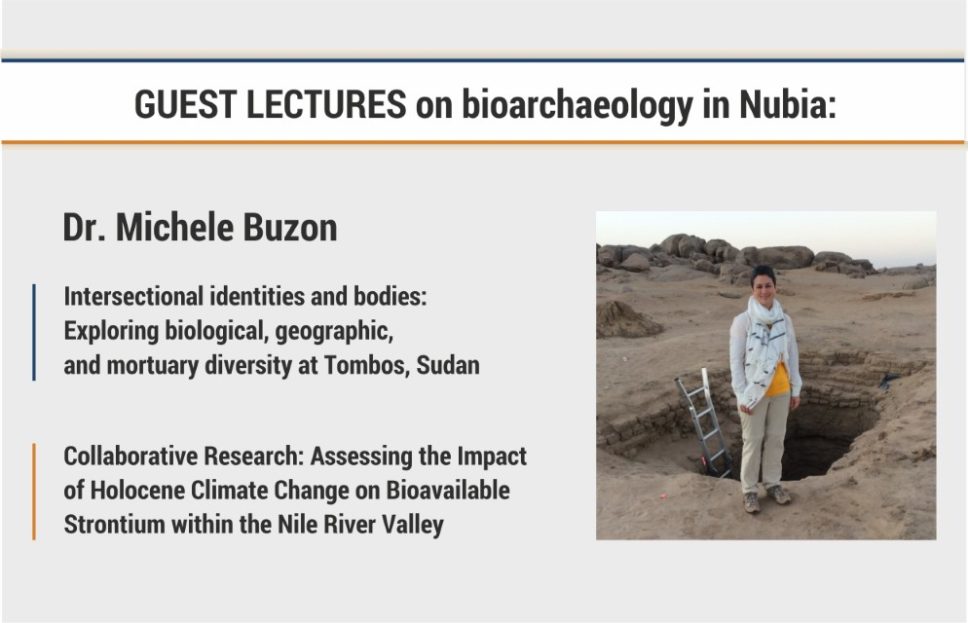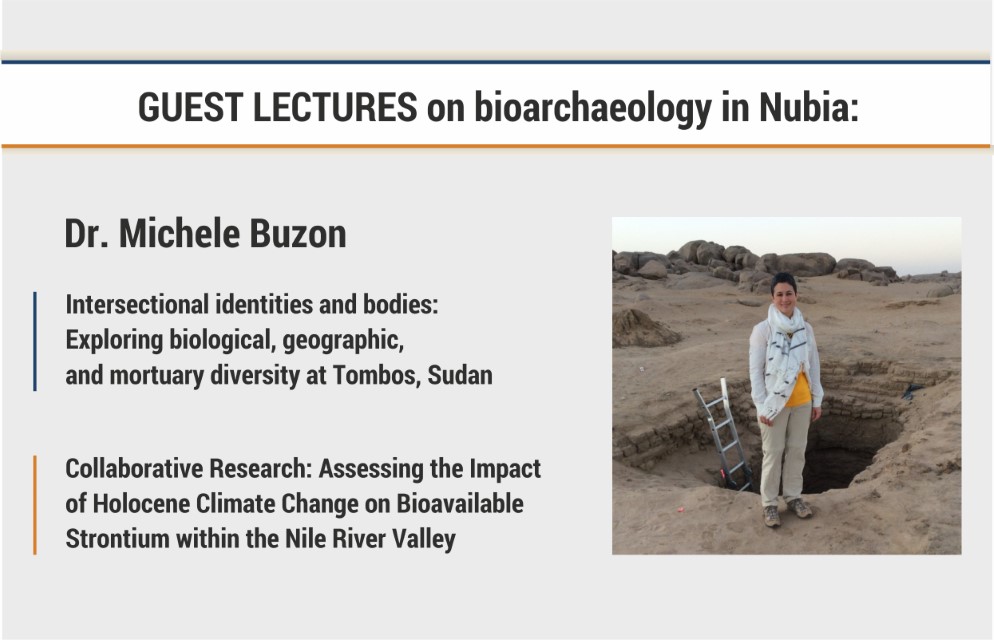Dr. Michele Buzon of Purdue University will present two talks at the Faculty of Archaeology, University of Warsaw, focusing on bioarchaeology in Nubia and the use of stable isotopes to trace mobility in the past. Dr. Buzon is collaborating with Dr. Robert Stark of the PCMA UW on an isotope project involving the site of Old Dongola (Sudan).
Both talks will be delivered in-person. Space is limited, so please register in advance by writing to Dr. Robert Stark (r.stark@uw.edu.pl) if you are interested in attending. Given the ongoing Covid-19 situation, it will be mandatory to wear a mask during the entire duration of both presentations.
- “Intersectional identities and bodies: Exploring biological, geographic, and mortuary diversity at Tombos, Sudan”
Dr. Buzon will discuss her work from the site of Tombos and broader questions of burial traditions and bioarchaeology in the borderland region between New Kingdom Egypt and Nubia.
Tuesday, October 12th, from 15:00–16:30, Faculty of Archaeology, University of Warsaw, Krakowskie Przedmieście st 26/28, Room 118.
- “Collaborative Research: Assessing the Impact of Holocene Climate Change on Bioavailable Strontium Within the Nile River Valley.”
This presentation will focus on a collaborative project Dr. Buzon is undertaking to contextualize bioavailable strontium within several broader regions of Sudan, a process that will help researchers to gain more refined insights to potential instances of mobility among past populations inhabiting the various environs of Sudan, ancient Nubia.
Thursday, October 14th, 15:00–16:30, Faculty of Archaeology, University of Warsaw, Krakowskie Przedmieście st 26/28, Room 212.


